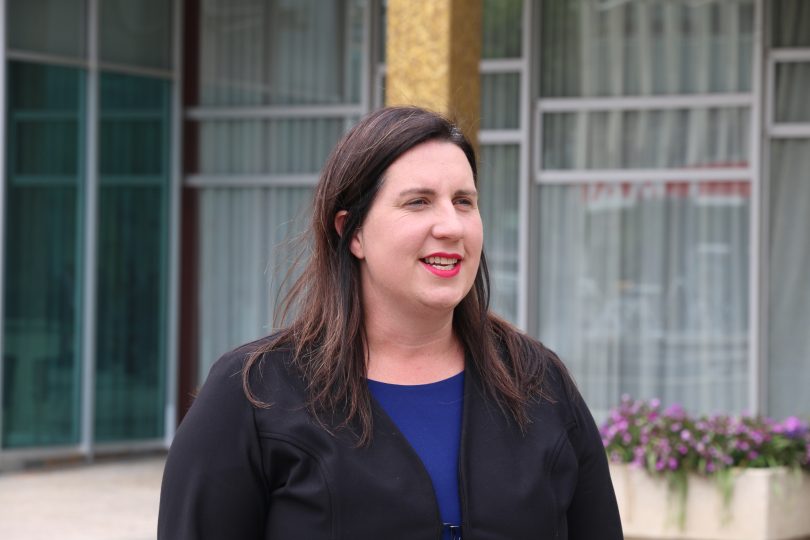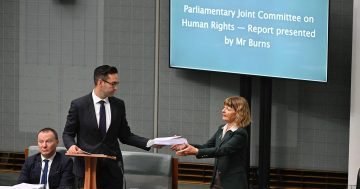
Opposition spokesperson on multicultural affairs Giulia Jones said she was glad racism had proved to be more important than party politics. Photo: Dominic Giannini.
Following anecdotal reports of an increase in incidents of racism since the beginning of the pandemic, the ACT Government has established an inquiry into why this is happening, where it’s happening and what can be done.
The inquiry will begin immediately and be conducted by the Legislative Assembly’s Education and Community Inclusion Committee.
A motion raised by Opposition spokesperson on multicultural affairs Giulia Jones last Thursday (11 November) received tripartisan support, prompting Mrs Jones to say it was good that racism had proven more important than party politics.
The inquiry will invite confidential submissions from victims of racist attacks in the ACT, those who witness them, seek the input of the Human Rights Commission and ACT Policing, and look to outline evidence-based solutions to combatting racism.
It will also examine the reporting mechanisms available for those who experience racial abuse or vilification. Mrs Jones has previously said she’s heard from multicultural community members that they were unaware incidents could be reported to the Human Rights Commission.
Mrs Jones told the Assembly last week that she hopes the inquiry will reveal the context around incidences of racism in the community.
She spoke once again about some of the experiences people have shared with her, such as rocks being thrown at windows, people being verbally abused in their own homes and women in hijabs being screamed at, business owners of Chinese origin being targeted and Indian-Australians called ‘curry dogs’ and ‘f–ing Indians’.
Mrs Jones acknowledged that Canberrans had been placed under extreme pressure through COVID-19 with financial stress, changes to home life with working from home and children learning from home and extended lockdowns all contributing to this.
“This has unfortunately led to an apparent rise in the number of verbal attacks and threats of violence on people in the Canberra community on the basis of their ethnic or cultural origin, religion or language,” Mrs Jones said.
“Let’s be clear, COVID-19 can affect anyone and is not transmitted in our community by persons of any specific race, ethnicity, religion or culture.”
ACT Greens spokesperson on multicultural affairs Andrew Braddock spoke in support of the motion, saying “people who engage in this kind of behaviour [racism] do not and cannot represent us”.
He also noted reporting should be “independent, safe, easy and non-invasive” while accommodating for language and ability.
Mr Braddock went on to note the need for the ACT to have an anti-racism strategy which would be “a fully-fledged plan to support social cohesion and inclusion at all levels, moving beyond the short-term celebration of visible and palatable signs of cultural differences, like music, dancing, and food, and asking the hard questions about representation, power, and resources”.
Minister for Multicultural Affairs Tara Cheyne said the ACT did already have a strong legislative framework in place to address racism and racial vilification but said she welcomed the opportunity to hear from the community about the gaps in the current system as well as the root causes of racism.
“We are a proud multicultural community and there must be zero tolerance for any form of racist behaviour,” she said.
Ms Cheyne also noted that some people may not choose to report racism as such incidents are often fleeting, can be from strangers and can be difficult to prove.
A discussion paper will be prepared by 31 March 2022. The committee will report back by 30 September 2022.















